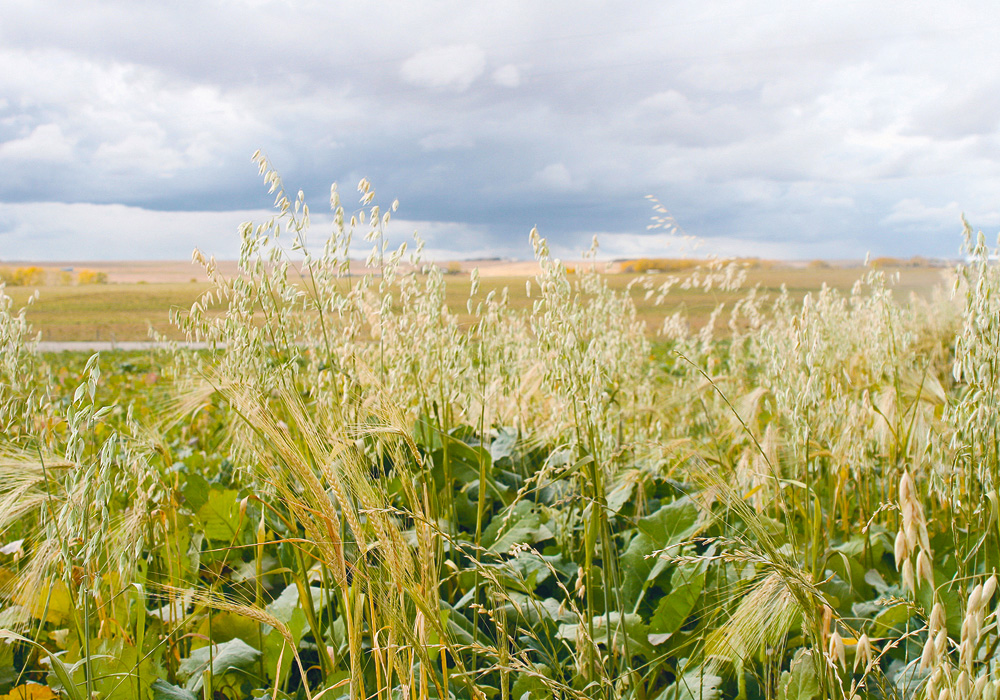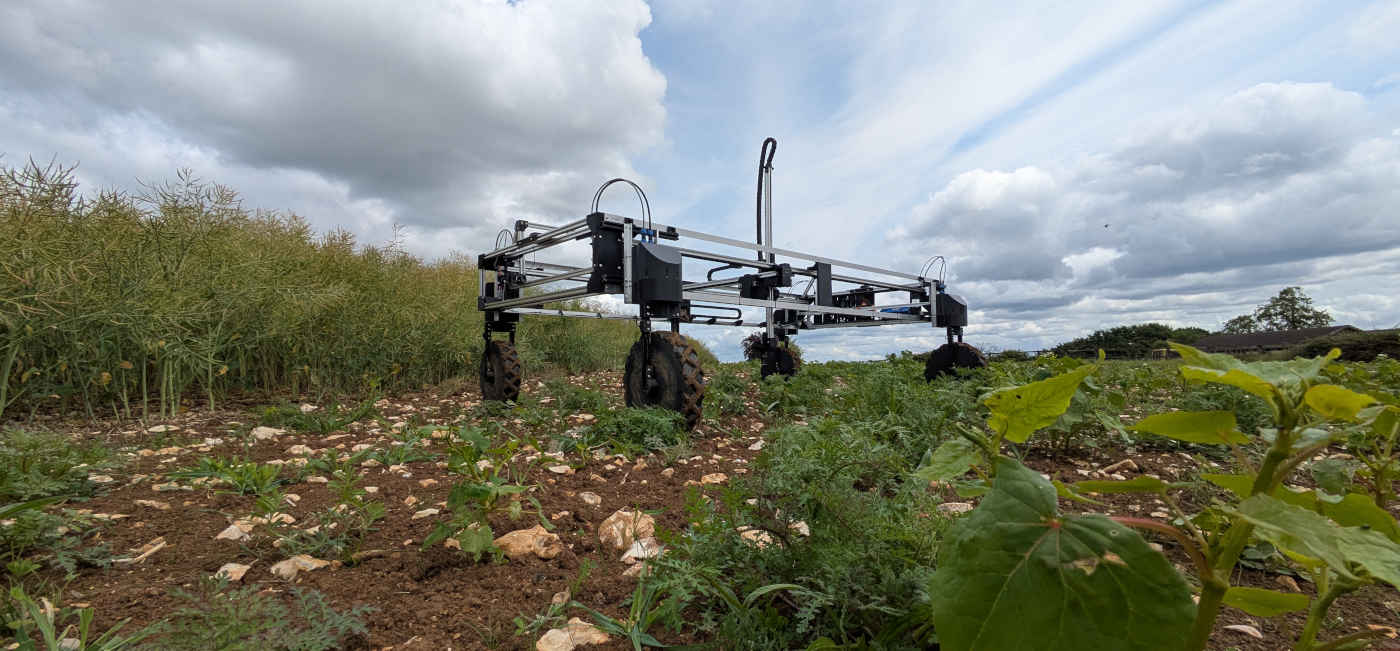Cultivating Change: Our Vision for a Sustainable Agricultural Future
June 2, 2025
Author: Chris Bacon
Modern conventional farming, despite its high productivity, faces significant challenges due to practices that are largely defined by those proving unsustainable. It relies heavily on intensive tillage, extensive use of agrochemicals, and a significant input of fossil fuels. These methods, while achieving scale, have led to widespread soil degradation, a decline in microbial health, damage to beneficial insect populations, and a reduction in broader wildlife ecosystems. Additionally, herbicide resistance is increasingly prevalent in weeds, with some grass-weeds, such as blackgrass and Italian rye-grass, becoming increasingly difficult to manage. Globally, there is concern about the destruction of vital topsoil and the increasing rate of desertification. This industrial approach attempts to over-simplify the inherent complexities of nature. At Spring Agriculture, our work is driven by the conviction that we can and must address these trends and work towards more sustainable solutions.
"Our vision is one where agriculture enriches both our lands and our lives, transforming farming worldwide to a sustainable model..."
Our vision is one where agriculture enriches both our lands and our lives, transforming farming worldwide to a sustainable model that remains financially competitive and able to feed a growing global population. We imagine looking out onto agricultural landscapes that are not only rich in crops but also abundant in biodiversity, from the micro-organisms in the soil to the insects, pollinators, birds, and larger mammals above ground. This translates to seeing "natural-looking crop meadows" where a diversity of plant species intermingle both above and below ground, yielding numerous agroecological benefits. Our core aim is to strike a balance, ensuring good yields while allowing natural processes to thrive as much as possible, moving beyond an oversimplified and reductive view of ecological systems. This philosophy directly supports key United Nations sustainability goals, particularly those focused on protecting life on land and taking urgent action to combat climate change and its impacts.

The ecological need for change is clear, and our work directly addresses these pressing environmental needs. We are committed to achieving key outcomes such as significantly increased biodiversity, both above and below the ground, because a functional food web requires all its interrelated organisms to work effectively. Central to this is the urgent need to rebuild and enhance soil health. As the agricultural journalist Paul Harvey succinctly put it, "Despite all our accomplishments, we owe our existence to a six-inch layer of topsoil and the fact it rains." Healthy soil offers improved structure, better water retention and infiltration, and more efficient nutrient cycling - all vital for healthy crop growth, and sequestering carbon from the atmosphere. By actively working to sequester carbon and minimize greenhouse gas emissions throughout the agricultural life-cycle, we can transform farming into a powerful solution for climate change.
As the agricultural journalist Paul Harvey succinctly put it, "Despite all our accomplishments, we owe our existence to a six-inch layer of topsoil and the fact it rains."

We also understand the immense pressures and realities facing today’s farmers. Many operate on low profit margins while contending with the escalating costs of essential inputs like agrochemicals, fuel, and increasingly large machinery. Challenges such as labour availability and uncertainty surrounding agricultural subsidies add further layers of stress and complexity. Beyond the economic strains, many farmers are concerned about the visible decline in their soil quality, the reduction in its ability to absorb and retain water, and the fact that maintaining current yields necessitates increasing inputs while harming the soil. There's a growing concern over the environmental damage occurring on and around their land, including the loss of biodiversity. While the desire to transition to more sustainable, regenerative methods is often present, the perceived complexity, potential risks, and a lack of suitable, scalable tools and equipment can present significant barriers to change.
Our path towards sustainable agriculture is one that thoughtfully integrates ecological wisdom with the capabilities of advanced technology. We advocate methods such as significantly reducing or eliminating soil disruption through no-till or minimum-tillage practices, and the strategic use of intercropping, polycropping, and diverse plant mixes to create habitats for beneficial insects and other wildlife, and for positive sub-soil interactions. Closing nutrient cycles by returning organic matter to the soil is also a cornerstone of this approach, which takes considerable inspiration from the proven, soil-first techniques of bio-intensive 'market garden'-style farming, where high productivity and profitability are seen as natural outcomes of excellent soil health. To make these complex, nature-mimicking systems manageable and scalable, we are developing knowledge-intensive planning software coupled with sophisticated in-field robotic automation.

While traditional bio-intensive methods are highly effective, they are labour-intensive and difficult to scale up in the context of today's highly mechanised agricultural landscapes. This is where intelligent in-field automation becomes transformative. We are focused on developing fleets of small, relatively inexpensive, and highly adaptable agricultural robots. These robots will be capable of performing a range of tasks with high precision, including planting diverse crops, mechanically controlling weeds (thereby reducing or eliminating the need for herbicides ), continuously monitoring crop and soil conditions, and selectively harvesting in complex, polycultural environments. This is fundamentally different from current agricultural mechanisation, which typically relies on ever-larger machines designed for monocultures. Our technology aims to enable and support the intricate and diverse planting schemes essential for regenerative farming, something current machinery struggles to achieve economically or practically. By harnessing recent breakthroughs in artificial intelligence, such as advanced Vision Language and Vision Language Action Models, our robotic systems will offer unparalleled precision, operational efficiency, and adaptability in these dynamic agricultural settings.
"Our technology aims to enable and support the intricate and diverse planting schemes essential for regenerative farming..."
The positive impacts of this agricultural evolution will extend far beyond the farm gate. By significantly reducing the reliance on synthetic fertilisers and pesticides, we can curtail agricultural pollution and improve the water retention capacity of soils across vast areas. This, in turn, bolsters the resilience of our food systems and can play a crucial role in reversing land degradation and combating desertification.
Our systems are being designed with accessibility in mind, aiming to empower individual farmers, including those managing smaller landholdings, to adopt these beneficial and sustainable practices. The widespread adoption of such regenerative agricultural methods holds the potential for enormous positive impact, leading to significant sequestration of atmospheric carbon back into the soil, making a vital contribution to global efforts against climate change, enhancing food security, and helping to restore biodiversity at a meaningful scale.

Spring Agriculture was born from a deep-seated passion for environmental issues and a strong conviction that we can, and indeed must, fundamentally change the way we farm. Our core motivation is to spearhead the transformation of agriculture into a model that is not only environmentally sustainable but also financially competitive, ensuring it can continue to feed a growing global population for generations to come.
We envision a future where farming practices work in harmony with natural systems, leading to enhanced biodiversity, the rebuilding of soil carbon, improved water quality, and critically, the economic wellbeing of the people who manage and farm the land. We firmly believe that advanced AI and robotics are key enablers in making this ambitious vision a widespread reality, offering a clear pathway to profitable, regenerative agriculture at all scales.
We are committed to developing innovative tools and systems to make this future possible, to help cultivate a healthier, more resilient planet.
"Our core motivation: transforming agriculture to be both environmentally and financially sustainable."